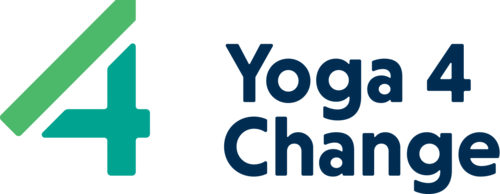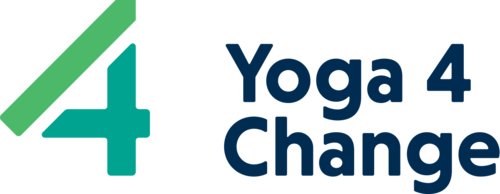In early January 2018, Yoga 4 Change received a $50,000 grant from the Chartrand Family Foundation to fund an evaluation study to assess the impact of trauma informed yoga on incarcerated individuals. Yoga 4 Change’s curriculum is specifically developed to empower students to break down barriers and confront their emotional and physical limitations, while also providing tools to help students reconstruct their thinking so that they can focus on how to move through their past and start contributing back to their community. As a non-profit organization, Yoga 4 Change is committed to the rigorous examination of their programs with a desire to demonstrate measurable outcomes and facilitate optimal impact with stakeholder funding. The results from this evaluation will be used to:
-
Further improve the Yoga 4 Change trauma informed curriculum
-
Increase benefits associated with an optimized program
-
Expand the audience to whom effective yoga is administered
-
Support staff expansion
-
Justify changes in the court system to expand Yoga 4 Change program awareness and access
-
Validate existing outcome assessments and develop additional tools to demonstrate program impact
Dr. Danielle Rousseau
Dr. Danielle Rousseau, PhD, LMHC will serve as the primary faculty during the evaluation and will coordinate efforts between Yoga 4 Change teachers and a team at Boston University. Dr. Rousseau is a licensed therapist and certified yoga teacher. Her professional focus has been in trauma services and gender advocacy and she is a social justice researcher and practitioner. Dr. Rousseau’s research, teaching, and practice focus on the areas of justice, trauma, gender, mental health, and mindfulness. She is an advocate of integrative, holistic approaches that support embodied self care.
Dr. Rousseau working with a student in Haiti.
Through your research, what are some of your greatest revelations related to how mindfulness techniques can benefit those living within the justice system or going through substance abuse recovery?
In my work to date, I have seen that embodied mindfulness programming can help to ameliorate mental health symptoms, improve physical well-being and create positive coping strategies. Yoga can help with impulse control, bring greater awareness, and allow the practitioner to more effectively maintain sobriety and to manage trauma symptoms by staying present. Yoga improves both emotional awareness and emotional regulation, and allows practitioners to be embodied in a way that they may not have had access to before. Embodied mindfulness programming may offer an opportunity for vulnerability in an environment where it is generally not safe to be vulnerable, this can be powerful. These embodied practices can serve as complementary and alternative approaches to other mental health and substance abuse treatment modalities. Embodied practices also become a tool people who are incarcerated can share with others in their lives.
Statistically speaking, how is the average incarcerated adult’s mental and physical health impacted by their time spent within the justice system?
Systemic issues have led to significant increases in incarceration. Incarceration is impacted by racial disparities, the criminalization of homelessness, and the incarceration of people with mental illness. The War on Drugs has led to the incarceration of nonviolent offenders in need of treatment, but these needs often go unmet. The jails and prisons in our country have come to be referred to as the “new asylums.” As institutions for the treatment of mental health issues closed and community based services were not available, many individuals with mental illness ended up in the correctional system. Jails and prisons became a de facto mental health system.
According to the Bureau of Justice Statistics, approximately 1 in 7 prisoners and 1 in 4 jail inmates meet the criteria for serious psychological distress. People who are incarcerated are more likely to meet the criteria for mental illness than are people in the general public. Women who are incarcerated have an even higher rate of mental and physical health needs. Women are more likely to have a history of physical and/or sexual abuse, to be primary caretaker of young children and to have distinct physical and mental health needs.
Incarceration itself can be both traumatizing and re-traumatizing. Trauma responses can be triggered by many aspects of incarceration including aggressive or abusive peers or superiors, misperceptions of other’s behavior, small spaces, strip searches, lack of privacy, and of course, solitary confinement. Within this context, trauma-informed programming is so important.
What is your methodology for observing and evaluating the programs Yoga 4 Change offers to those individuals who are incarcerated?
We will be conducting evaluation at both the class and curriculum level at multiple correctional facilities in Duval County. Participants will include people incarcerated at both men’s and women’s facilities. The study will include three groups (1) Individuals participating in Yoga 4 Change programming as part of their sentencing structure, (2) Individuals volunteering for participation in programming, and (3) a control group not participating in programming. This control group will later have access to programming. The three study groups allow a multi-way comparison. We will be able to better understand the impact of the Yoga 4 Change program as well as to explore potential differential impacts between mandatory and voluntary participation.
Assessment will be conducted at two primary levels, (1) before and after each class and (2) before and after implementation of each six-week curriculum session. Pre- and post-class assessments will occur weekly and will incorporate health status outcomes as well as simple scale measures of stress level, anxiety level and mood. Pre-, mid-, and post-curriculum assessments will consist of a self-report survey tool including multiple validated scales assessing various domains and allowing for qualitative feedback. The two levels of assessment will enable pre- and post-comparison at the individual class, session, and overall curriculum level.
What are some of the key measurements you will be recording when conducting your observations? Additionally, what do these measurements tend to tell us about an individual’s overall health and wellness?
Our assessment takes a holistic and primarily strengths-based approach. We want to understand how Yoga 4 Change programming can be both empowering and transformative. We want to know about an individual’s physical and mental well-being as well as their sense of connection to others. In this study, we will explore constructs such as self-compassion, forgiveness, and post traumatic growth. We want to know how the themes of the Yoga 4 Change curriculum impact participants. Additionally, we want to use outcomes as a potential opportunity for growth for Yoga 4 Change, both in its curriculum and as an organization. We are excited to see what story will be told.
THANK YOU
We’d like to thank you for reading this week’s blog post.
Yoga 4 Change has a number of workshops and community classes scheduled for early 2018. Please take a moment and review our events calendar.







